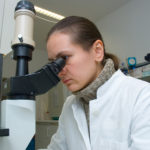
The UK public is likely to take the Covid-19 pandemic less seriously once restrictions are lifted
Psychologists have found lockdown in itself was a primary reason why so many people were willing to abide by the rules from the start, believing the threat must be severe if the government imposes such drastic measures. Cardiff University says its researchers, and colleagues from the universities of Bath and Essex, examined the reasons behind … Continue reading The UK public is likely to take the Covid-19 pandemic less seriously once restrictions are lifted

Covid-19 genome sequencing project gets a major upgrade
Supercomputing facilities set up to track the spread and evolution of the Covid-19 pandemic have received £1.2m in government funding to expand globally. Cardiff University says the new funding will enable the CLIMB COVID-19 project, which it leads with the University of Birmingham, to carry out significant upgrades to computational equipment to process and store … Continue reading Covid-19 genome sequencing project gets a major upgrade

Computing system for Covid-19 sequencing analysis wins major award
The Cloud Infrastructure for Microbial Bioinformatics (CLIMB) project has been recognised in the 2020 HPCwire Readers’ and Editors’ Choice Awards. It received the Readers’ Best High Performance Computing Collaboration award for its role in supporting the COVID-19 Genomics UK (COG-UK) Consortium. The consortium is a UK wide partnership working to sequence SARS-CoV-2 virus genomes to … Continue reading Computing system for Covid-19 sequencing analysis wins major award

Researchers develop new tool to help detect hidden signs of autism in adults
Researchers have developed a potential new tool to help clinicians detect hidden signs of autism in adults. Autism is usually diagnosed in childhood but a growing number of adults are being diagnosed with the condition, even in mid to late adulthood. Many adults develop compensatory psychological strategies to hide their symptoms from clinicians, employers and … Continue reading Researchers develop new tool to help detect hidden signs of autism in adults

A novel switch to control gene editing
A biological switch that reliably turns protein expression on at will has been invented by University of Bath and Cardiff University scientists. The switch enables control of genome editing tools that might one day regulate cascades of desired genetic changes through entire populations. Phys.Org reports this new switching method should work for any protein in … Continue reading A novel switch to control gene editing

£2.9m awarded to tackle antibacterial resistance in Thailand
An inter-disciplinary research consortium led by the University of Bristol has won a £2.9m award from the Global Challenges Research Fund (GCRF) to help tackle the growing incidence of antibacterial resistance in Thailand. Antimicrobial resistance and specifically antibacterial (antibiotic) resistance (ABR) is a growing threat to human health and economic development across the globe. In … Continue reading £2.9m awarded to tackle antibacterial resistance in Thailand

Researchers take digital health messages to Westminster
A team from the University of Bath and University of Salford have presented preliminary findings from a new research project on young people and digital health at an event held in the House of Commons. The University of Bath reports the policy event, hosted by Dr Lisa Cameron MP, was attended by researchers, young people, … Continue reading Researchers take digital health messages to Westminster

Even the simplest microbe can act like a savvy investor
Scientists investigating the fundamental question in biology as to why individuals have evolved to cooperate rather than simply exploiting the contributions of their rivals, have found that microbes vary their contribution to maximise the return of investment. The University of Bath reports a collaboration between its Milner Centre for Evolution and University College London has … Continue reading Even the simplest microbe can act like a savvy investor

Brains of people with conduct disorder wired differently
New research has revealed clues that might help explain why young people with the most severe forms of antisocial behaviour struggle to control and regulate their emotions, and might be more susceptible to developing anxiety or depression as a result. The study, published in Social Cognitive and Affective Neuroscience, used neuroimaging methods to investigate young … Continue reading Brains of people with conduct disorder wired differently

Identifying the building blocks for drug development
Biochemist Dr Jody Mason has been awarded a Pioneer Award from Cancer Research UK to work on a new way of screening molecules which could become new cancer medicines. CRUK Pioneer Awards are given to scientists with innovative, higher risk ideas that could revolutionise the understanding of cancer. The University of Bath reports Jody Mason’s … Continue reading Identifying the building blocks for drug development








